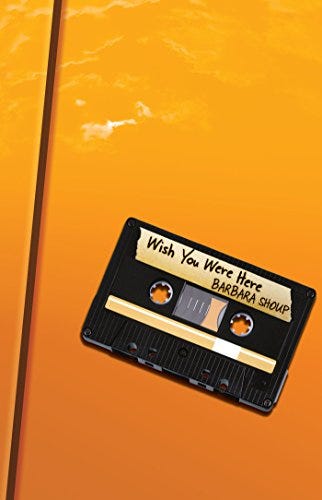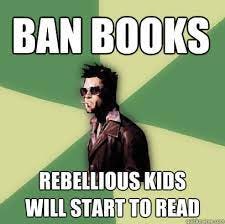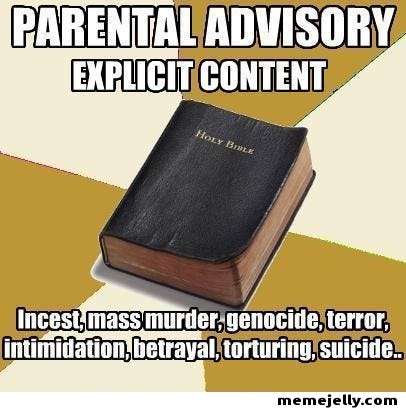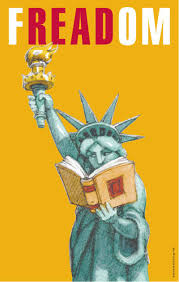One of the most astonishing things that ever happened to me was leafing through my Authors Guild Bulletin early in 1995 and finding my own book—Wish You Were Here—on the list of 1994’s 100 Most Banned Books.
In very good company, I might add.
But why was it there? The reviews were good but it wasn’t as if it had become bestseller, on the tip of every reader’s tongue. All I could figure was that, having been nominated for a number of state library-sponsored book awards, it came to the attention of those people who have a problem with—
well, reality.
As in, God forbid we should tell kids the truth about their own lives.
Especially, sex.
I thought about Wish You Were Here, listening to John Green talk about book banning on Monday evening, at our Central Library. As always, he spoke eloquently on the topic, with passion and humor. Recently, he wrote a scathing letter to the Board of Directors of nearby Hamilton County after when a new review policy for children’s books resulted in several of his YA novels (along with many others) being transferred from the Young Adult to Adult section to keep them out of the hands of teenagers.
John gave an eye roll at the idea of placing his books in the company of controversial adult novels, making those novels more likely to be discovered by teenagers.
We all laughed.
Thank God for irony, right? That resonating “duh” at the absurdities of life is such a comfort in these awful times times. What our sense of irony allows us to see about the world makes us feel smarter, better than those people.
Then I thought, but what if irony make us weaker?
Oy! There was a black hole to tunnel down and, of course, I did.
One of the few things I know for sure is that the more I read and write fiction, the more I see the complexity of—everything. I grow less judgmental about what people believe and more curious about why they believe it. Which my husband (despite his own excellent sense of irony) from time to time points out can make me wishy washy about moral issues. It’s true.
“But—” I’m always saying.
You wouldn’t want to pick me for a jury.
Nor would you want me to be in your army platoon. I’d be constantly trying to figure out why the other side was so mad at us.
Politics is at the root of extremism (on either side), shaped by leaders whose fervor may have as much to do with personal ambition as belief in the cause. They depend on those who never second-guess its righteousness and will do whatever they’re told needs to be done to make everything and everyone in the world line up with what they believe is right. They are never distracted by contradictions or entertained by absurdities. The cause is not in any way abstract to them.
Irony distracts, it shouts out complexity, it can make you laugh, even when you’re enraged. It lets you keep a distance. I knew that.
But it hadn’t occurred to me until now to wonder to what degree it might it be a factor in how book banners and others with rigid beliefs have been able to gain so much power?
And I have to say this scared the crap out of me. It made me anxious about doing little more than watch the insidious efforts to remove books from library shelves play out, posting my often-ironic memes, talking, waiting—
For what?
The book banners are not going to change their minds. It’s extremely unlikely that anything will make the movement fold.
In a satisfying turn of events, John Green’s letter went viral on social media, shaming the community in question so profoundly that they fired the president of the library board and suspended the review policy.
Who of us but John has that kind of power, though? And while it’s vital for the rest us to speak out anyway, we’re mostly preaching to the choir—as he was Monday evening. It’s so hard to know what to do, given the time and resources available to us.
In any case, thanks, John Green for the good work you do for books. And thanks to the rest of us for fighting the good fight the best we can, irony intact.
How could we survive without it?








I love it that you’ve had a banned book!
A badge of honor!